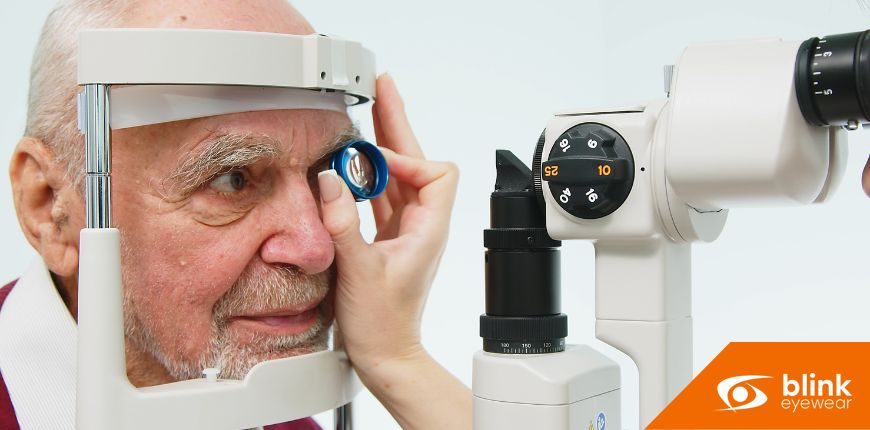
This blog emphasizes the vital role of regular eye exams in the early detection of Age-related Macular Degeneration (AMD), a leading cause of vision loss in older adults. It highlights how these exams can identify signs of AMD before symptoms appear, allowing for timely interventions that can slow disease progression and preserve vision. The blog discusses the importance of personalized care plans, lifestyle modifications, and the use of advanced diagnostic tools in managing AMD. It also touches on the significance of patient education and participation in regular screenings for both individual health and the advancement of AMD research. Ultimately, the blog advocates for regular eye exams as a crucial step in maintaining eye health and combating AMD.
The eyes are not just windows to the soul; they are also mirrors reflecting the state of our health. Amidst the hustle and bustle of life, we often take our vision for granted, only to realize its importance when faced with potential threats. One such threat is Age-related Macular Degeneration (AMD), a leading cause of vision loss among people aged 50 and older. This condition affects the macula, the part of the eye responsible for sharp, central vision needed for activities like reading and driving. While the thought of AMD can be daunting, there's a beacon of hope in early detection, primarily through regular eye exams. The role of these exams in catching AMD early cannot be overstated, offering a chance to preserve vision and quality of life.
The Unseen Advancements of Early Detection
Regular eye exams serve as a preventive measure, much like routine check-ups with a general physician. They allow eye care professionals to detect signs of AMD before symptoms even begin. This early detection is crucial because, in its initial stages, AMD may not present any symptoms, yet irreversible damage could be occurring. Through comprehensive exams, which include looking at the retina, an optometrist or ophthalmologist can identify early signs of AMD, such as drusen—tiny yellow deposits under the retina. Catching these signs early opens the door to interventions that can slow the progression of the disease, potentially preserving vision longer than would otherwise be possible.
The Power of Personalized Care Plans
When AMD is detected early, eye care professionals can create personalized care plans tailored to the individual's specific condition and needs. These plans might include recommendations for lifestyle changes, such as diet and exercise, which have been shown to slow the progression of AMD. Additionally, they might recommend supplements, such as the AREDS2 formula, which has been proven to reduce the risk of AMD progression in some individuals. Regular monitoring and adjustments to the care plan can significantly impact the course of the disease, emphasizing the importance of those routine eye exams in detecting changes as early as possible.
Enhancing Understanding and Awareness
Knowledge is power, and regular eye exams provide a golden opportunity for education on AMD. Eye care professionals can use the time during these exams to inform and educate patients about the risks, prevention strategies, and the importance of monitoring for symptoms of AMD. This increased awareness can empower individuals to take proactive steps in managing their eye health, including understanding when to seek medical attention for changes in vision. Such education can demystify AMD, making it a manageable part of a person's health care routine rather than a feared unknown.
The Role of Advanced Diagnostic Tools
Advancements in diagnostic technology have enhanced the effectiveness of eye exams in detecting AMD early. Tools like optical coherence tomography (OCT) and fundus photography provide detailed images of the eye's structures, allowing for the precise identification of early AMD signs. These technologies enable eye care professionals to detect and monitor changes over time, facilitating early intervention strategies. The use of these advanced tools during regular exams showcases the evolution of eye care and its critical role in combating AMD.
A Pathway to Research and Future Treatments
Participation in regular eye exams not only benefits the individual but also contributes to the broader fight against AMD. Data collected during these exams can inform research, leading to a deeper understanding of the disease and the development of new treatments. As individuals engage in regular screenings, they become part of a collective effort to advance scientific knowledge, ultimately paving the way for innovations in AMD care and management.
In conclusion, regular eye exams are a cornerstone in the early detection and management of Age-related Macular Degeneration. They offer a proactive approach to preserving vision, enabling personalized care plans, and enhancing patient education. With the support of advanced diagnostic tools, these exams play a pivotal role in the ongoing effort to understand and combat AMD. By prioritizing eye health and regular check-ups, individuals can take significant steps toward maintaining their vision and quality of life in the face of AMD. Let's view regular eye exams not just as routine appointments but as vital, empowering opportunities to protect our precious gift of sight.
Written on behalf of Blink Eyewear.